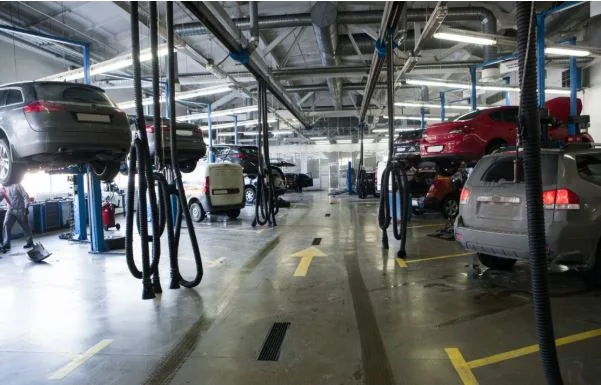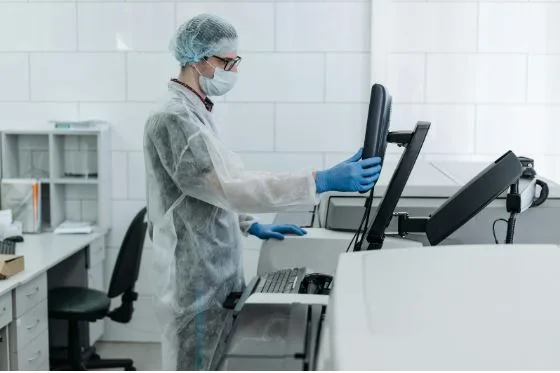Bidirectional Power Supplies Transform EV Testing Industry
The electric vehicle industry is experiencing a technological breakthrough that could accelerate development timelines and improve testing accuracy across automotive, aerospace, and energy storage sectors. According to recent industry analyses, advanced bidirectional power supply systems are now delivering unprecedented testing capabilities while contributing to carbon-neutral manufacturing processes.
Compact Power Revolution in Laboratory Settings
Modern electric vehicle development faces complex challenges as engineers work to optimize battery performance, inverter efficiency, and power management systems. Traditional testing equipment often requires multiple units to simulate real-world conditions, creating space constraints and operational complexities in research facilities.
The breakthrough comes from ultra-compact bidirectional power supplies that condense massive 20kW capacity into a single 3U chassis unit. This represents a significant advancement over conventional switching power supplies, which typically require much larger footprints to deliver similar power levels.
These systems can handle voltages up to 1500V while providing both power sourcing and regenerative capabilities in a single unit. The technology addresses a critical gap in testing equipment for high-voltage electric vehicle components, including inverters, battery management systems, and charging infrastructure.
High-Speed Testing Capabilities Drive Innovation
One of the most significant advantages of modern bidirectional power supplies lies in their rapid response times. These systems achieve rise and fall times of just 10 milliseconds, which is several dozen times faster than conventional switching power supplies.
This speed improvement enables high-velocity power fluctuation testing that closely mimics real-world driving conditions. Electric vehicles experience rapid power demand changes during acceleration, regenerative braking, and varying load conditions. Testing equipment must replicate these dynamics accurately to ensure component reliability and performance optimization.
The enhanced speed also allows engineers to conduct more comprehensive testing cycles in shorter timeframes, potentially reducing product development schedules. This capability becomes particularly valuable as automotive manufacturers face increasing pressure to bring electric vehicles to market quickly.
Energy Regeneration Supports Sustainability Goals
A revolutionary aspect of advanced bidirectional power technology is its ability to regenerate power back to the facility’s electrical grid. When testing inverters or battery systems that generate power during operation, the equipment converts this energy into reusable electricity rather than dissipating it as waste heat.
This regenerative capability achieves efficiency rates exceeding 90 percent at rated loads. The technology not only reduces energy consumption but also minimizes heat generation in testing facilities, decreasing cooling requirements and associated energy costs.
For manufacturers pursuing carbon neutrality goals, this represents a meaningful contribution to sustainability efforts. Large-scale testing operations can significantly reduce their environmental footprint while maintaining rigorous quality assurance standards.
Parallel Operations Enable Massive Scale Testing
The most ambitious applications involve parallel operation of multiple bidirectional power supplies to achieve massive power outputs. Systems can link up to 25 units together, creating combined capacities reaching 500kW.
This scalability proves essential for testing large electric vehicle components, including commercial vehicle systems, aircraft electrification projects, and industrial energy storage installations. The parallel configuration maintains synchronized operation through automated recognition systems that eliminate complex manual setup procedures.
Such high-power testing capabilities were previously available only through specialized facilities with custom-built equipment. The modular approach makes advanced testing accessible to more research institutions and manufacturers, potentially accelerating innovation across the entire electric vehicle ecosystem.
Applications Span Multiple Industries
While electric vehicle development drives much of the demand, bidirectional power supplies serve diverse applications across multiple sectors. Aerospace companies use these systems to test electric aircraft components, including propulsion systems and energy storage units for next-generation aviation technologies.
Energy storage system manufacturers rely on bidirectional testing to validate battery performance, power conversion efficiency, and grid integration capabilities. As renewable energy deployment accelerates, these testing requirements become increasingly critical for ensuring reliable energy storage solutions.
Bidirectional power supplies that offer 20kW capacity represent a new standard in precision testing equipment. Companies like Kikusui have developed these systems specifically to meet evolving industry requirements, incorporating features such as touch panel displays, sequence programming capabilities, and comprehensive protection functions.
The technology includes specialized modes for different applications, including seamless current flow for battery charging and discharging tests, variable internal resistance simulation, and customizable I-V characteristic programming. These features enable more accurate simulation of real-world operating conditions.
Advanced Control and Programming Features
Modern bidirectional power supplies incorporate sophisticated programming capabilities that enhance testing flexibility and automation. Systems can execute up to 10,000 programmed steps across 30 different programs, enabling complex test sequences without manual intervention.
The equipment supports both pulse and sine wave operation modes, allowing engineers to simulate various electrical conditions that components might encounter in actual applications. Detailed technical specifications and performance data demonstrate the precision capabilities of these advanced systems.
External control interfaces accommodate integration with automated testing systems and programmable logic controllers. This capability enables seamless incorporation into larger manufacturing and quality assurance processes.
Industry Impact and Future Outlook
The availability of compact, high-power bidirectional testing equipment is already influencing electric vehicle development strategies. Manufacturers can now conduct more thorough component testing without significant facility investments or lengthy equipment setup procedures.
Research institutions benefit from access to advanced testing capabilities that were previously available only to major automotive manufacturers. This democratization of testing technology could accelerate innovation from smaller companies and startups in the electric vehicle space.
As electric vehicle adoption continues expanding globally, industry reports indicate the demand for sophisticated testing equipment will likely increase correspondingly. Market research suggests the technology’s applications extend beyond automotive to include electric aviation, marine propulsion, and stationary energy storage systems.
Manufacturing Quality and Competitive Advantages
The integration of advanced bidirectional power supplies into testing protocols represents a broader shift toward more sophisticated quality assurance processes in electric vehicle manufacturing. Companies that invest in superior testing capabilities often achieve better product reliability and performance outcomes.
The technology’s regenerative power features align with manufacturing sustainability initiatives while providing cost benefits through reduced energy consumption. This combination of performance improvement and environmental responsibility appeals to manufacturers facing increasing pressure to demonstrate corporate responsibility.
As the electric vehicle industry matures, testing equipment capabilities will likely become a differentiating factor in product development success. Organizations with access to advanced bidirectional power testing systems may achieve competitive advantages through improved product quality and accelerated development timelines.






